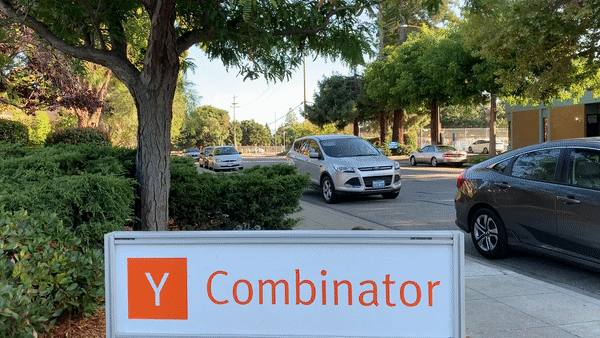Salutations, Olio aficionados! 👋
Welcome to the 170th edition of Weekly Olio. We’re thrilled to introduce a fresh new twist to your Sundays: Publisher Parmesan, our hand-picked, thoughtfully crafted edition designed to spark inspiration and insights for the week ahead.
It’s the perfect way to unwind, recharge, and prepare for the week with something truly worth savoring.
If you’re new here and you’re looking for more long-form, crispy writing, click the link to subscribe under this GIF 👇

A word from our Sponsors…
Run ads IRL with AdQuick
With AdQuick, you can now easily plan, deploy and measure campaigns just as easily as digital ads, making them a no-brainer to add to your team’s toolbox.
You can learn more at www.AdQuick.com
The Reverse Flip: Why Indian Startups Are Coming Home from Silicon Valley
For over a decade, Y Combinator (YC) was the startup world's golden gate. If you were an Indian founder and managed to get in, it was like being handed the keys to Silicon Valley. You got capital, mentorship, network access—and most importantly, validation. But in 2024, the dream is being re-evaluated. In fact, some of YC’s brightest Indian alumni are now spending hundreds of millions to undo that dream.
Take Meesho. Once a breakout success of the YC pipeline, the company recently announced it will pay close to $300 million in taxes to re-domicile its business from the U.S. back to India—a move known in startup lingo as the reverse flip. It’s not the only one. Fintech unicorn Razorpay is reportedly working on a similar reversal, expected to cost upwards of $150 million. And stockbroking platform Groww has already shelled out $160 million to make the shift.
So why are these well-funded, high-profile startups—many of whom flipped to a U.S. holding structure early on—now racing to move back? And what does this mean for the future of Indian founders considering the YC route?
Let’s unpack it.

At its core, Y Combinator offered more than money—it offered believability. For Indian founders, particularly in the 2010s, that meant credibility in front of global VCs, an on-ramp to the U.S. investor ecosystem, and a stamp of seriousness.
But it came with strings. Startups accepted into YC had to incorporate a holding company in the U.S. or similar jurisdictions like Singapore or the Caymans. All IP, cap tables, and shareholding structures moved under that new entity. The original Indian entity became a subsidiary.
The logic? U.S. incorporation meant smoother fundraising and global expansion. It wasn’t just strategic. For many, it was aspirational—a rite of passage into startup elitehood.
What Changed?
Over the past five years, India’s startup landscape has grown up—fast. Three major trends explain why the reverse flip is now in full swing.
1. India Became the Opportunity
Today, India’s domestic market is no longer seen as a stepping stone to a U.S. launch. It's the market.
From fintech to social commerce, the biggest growth stories are deeply local. The excitement around IPOs for Indian tech startups like Zomato, Nykaa, and Paytm has shifted focus inward. A local listing requires a local domicile—and suddenly, being registered in Delaware doesn’t make sense anymore.
2. Reversing the Flip Is Costly
Relocating to the U.S. may have helped early fundraising, but reversing that move is eye-wateringly expensive. Between capital gains tax, stamp duty, and legal fees, companies like Meesho, Razorpay, and Groww are paying hundreds of millions just to return to the soil they started on.
PhonePe set a precedent in 2023 by paying $1 billion to shift its headquarters from Singapore to India. That’s how much it costs to bring back IP, restructure shareholding, and rewire your business to comply with Indian regulations.
And these costs have created an entirely new line item in IPO preparation: Repatriation taxes.
3. YC’s Terms No Longer Look Founder-Friendly
YC’s updated investment terms—$500,000 in total funding, split into $125,000 for 7% equity and $375,000 through an uncapped MFN SAFE—raise eyebrows today.
That uncapped SAFE with a Most Favoured Nation clause can result in heavy dilution if the next round is raised at a lower valuation. While great for YC, it’s a risky bet for early-stage founders. Many Indian founders, especially post-pandemic, have become more discerning—and less starry-eyed.

Add to this the chaos surrounding Silicon Valley Bank’s collapse in 2023, which left many India-domiciled-but-U.S.-banked startups in panic mode, and the cracks in the dream began to show.
Stay up-to-date with AI
The Rundown is the most trusted AI newsletter in the world, with 1,000,000+ readers and exclusive interviews with AI leaders like Mark Zuckerberg, Demis Hassibis, Mustafa Suleyman, and more.
Their expert research team spends all day learning what’s new in AI and talking with industry experts, then distills the most important developments into one free email every morning.
Plus, complete the quiz after signing up and they’ll recommend the best AI tools, guides, and courses – tailored to your needs.
The Rise of the Reverse Flip
The shift back to India is not just a tax story. It’s a story of realignment—between ambition and geography, capital and control.
The reverse flip means these startups want to grow, raise, and list where their core markets are. And that requires re-domiciling, no matter the cost.
But it’s also a cultural reset.
The U.S. was once considered the only serious place to build a global startup. Not anymore. India’s capital markets, investor ecosystem, and regulatory environment are maturing quickly. Today, a serious founder can build and scale entirely from India—and raise capital without needing to reroute through Silicon Valley.
Is YC Still Worth It?
That’s the million-dollar question—or more accurately, the $600 million question if you tally what Meesho, Razorpay, and Groww are paying to reverse course.
Yes, Y Combinator still brings credibility, network, and early-stage funding. For a 20-year-old college dropout with an idea and no network, the YC badge remains powerful.
But it’s no longer the only path.
New India-focused pre-seed programs like Surge (by Peak XV), Accel Atoms, Antler, and Entrepreneur First now offer Indian founders mentorship, capital, and community—without requiring a flip or a foreign bank account. These programs are leaner, often offer larger checks, and more importantly, have terms better suited to Indian realities.
They are India-first. And they’re growing.
In fact, YC’s Summer 2024 batch had one of the lowest Indian founder representations in years. That’s telling.
What’s Next?
Indian startups are entering their adolescence. The early glow of foreign validation is giving way to the practical demands of local scale, regulation, and IPO preparation.
The new badge of honor isn’t just getting into YC. It’s building a business that scales in India, for India, and lists from India.
The reverse flip is a symptom of something bigger: India is no longer the back office of the startup world. It’s becoming the main stage.
For founders weighing the YC route, it’s time to ask hard questions. Not just “Can I get in?”—but “Does it still make sense to go?”
As more startups come home, that answer is shifting. Fast.
Interested in learning more about funding and investment space? Check out our previous coverage here:
That’s all for this week. If you enjoyed this edition, we’d really appreciate if you shared it with a friend, family member or colleague.
We’ll be back in your inbox 2 PM IST next Sunday. Till then, have a productive week!
Disclaimer: The views, thoughts, and opinions expressed in the text belong solely to the author, and not necessarily to the author's employer, organization, committee or other group or individual.



